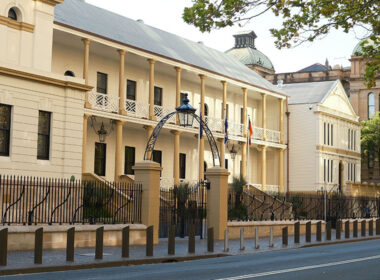The New South Wales Upper House has voted to refer the state government's proposed workers' compensation bill to a parliamentary inquiry after the Coalition moved to oppose the changes – dashing hopes of changing the compensation system by the new financial year.
On Thursday, the Opposition argued that the bill could disadvantage vulnerable workers. A central point of contention was the Government’s proposal to more than double the Whole Person Impairment (WPI) threshold for psychological injuries from 15 to 31 per cent. This change would have made it considerably more difficult for workers to receive ongoing support for psychological injuries after two-and-a-half years.
NSW Treasurer Daniel Mookhey argued against delaying the bill for an inquiry. He stated that doing so would miss a crucial opportunity to fix what he described as a “broken system” in urgent need of repair. Mookhey highlighted the significant disparity in return-to-work rates between physical and psychological injuries, with the latter being notably lower.
The Treasurer also emphasised that delaying these reforms would increase costs for small businesses and further weaken the scheme, which he stated is currently losing $5 million a day in the private sector. He pointed out that the Coalition had previous opportunities to address the issue while in government, suggesting that further delay would only worsen the situation.
The Opposition said it had been pressing for greater transparency regarding the proposed changes, specifically demanding the release of detailed modelling and financial projections. They contend that the Government has failed to adequately explain how the reforms would impact workers, families, and businesses, instead pushing for what they label “rushed legislation.”
Furthermore, the Opposition claims the Government has allowed the workers’ compensation scheme to deteriorate and is now attempting to “stop longer-term support for severely psychologically injured workers” without providing sufficient justification or releasing the underlying data. They highlighted that these changes would profoundly affect “real lives,” citing examples of teachers, nurses, and Service NSW workers.
Opposition Leader Mark Speakman said the inquiry aims to “restore process” and provide “clarity—not confusion, chaos or spin” to all stakeholders.
“Today’s decision means the truth can finally come out,” Speakman said.
Law Society backs inquiry
The Law Society of NSW expressed strong support for the inquiry. Jennifer Ball, President of the Law Society of NSW, stated, “The Law Society of NSW commends the Parliament of NSW’s Legislative Council for its referral of the Workers Compensation Amendment Bill 2025 to the Public Accountability and Works Committee for inquiry and report.”
Ball emphasised that an “evidence-based examination of the Bill creates a greater likelihood that the Parliament can legislate for a sustainable workers’ compensation scheme that is fair to genuinely injured workers and affordable for businesses and the taxpayer.” She also acknowledged the valuable contributions of experts from the Law Society’s Injury Compensation and Employment Law Committees to an earlier inquiry.
Ball says the Law Society looks forward to the Public Accountability Committee’s inquiry and has offered its continued expert assistance to the Legislative Council on this significant bill.
The establishment of this inquiry signals a clear push for greater scrutiny and public disclosure regarding the proposed workers’ compensation reforms. A report by the Public Accountability and Works Committee is expected later this year.




